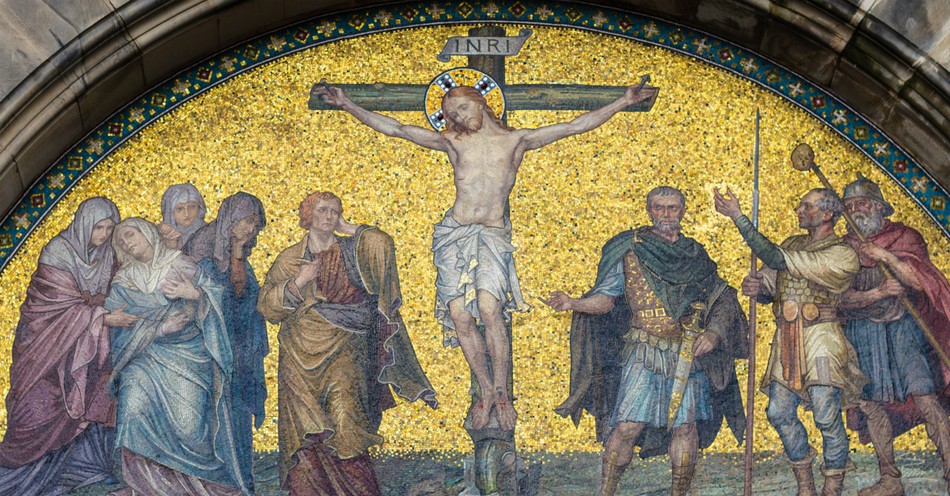This Ask Roger article may feature insights from Roger's wife, Dr. Julie Barrier, co-founder of Preach It, Teach It, worship minister, concert artist, and adjunct professor at Golden Gate Baptist Theological Seminary, or his daughter, Brie Barrier Wetherbee, a sought-after Bible teacher and conference speaker, author, analyst, and Christian theologian.
Dear Roger,
We were ending our Bible study when one of the women spoke up. She said, “I hate to bring this up, but I get so tired of my husband, William, always bragging about the things he’s done for Jesus.” One of the men replied, “I don’t want to gossip, but have you noticed that he always tries to take credit for every good thing that the church does. Frankly, I’m getting tired of it. He wants his name out in front where everyone can see it.” Can you please help us understand how to interact with William wisely?
Sincerely, Susan
Dear Susan,
William reminds me of an analogy I heard from a man who was discussing the damaging effects of pride:
“The moment that John comes in the front door, everyone else is backdoor.”
Does that sound familiar? I’m sure we all know people like this—and most of us have a grain of this attitude in ourselves.
So today, I’d like to construct a picture of a man who we’ll call the “Nameless Hero.” He’s the one who gave Jesus a drink when He hung in agony on the cross.
No one knows his name. He’s a man who didn’t care who got the credit. Period.
Read Matthew 27:46-49 with me:
About three in the afternoon Jesus cried out in a loud voice, “Eli, Eli, lema sabachthani?” [which means “My God, my God, why have you forsaken me?”]
When some of those standing there heard this, they said, “He’s calling Elijah.”
Immediately one of them ran and got a sponge. He filled it with wine vinegar, put it on a staff, and offered it to Jesus to drink. The rest said, “Now leave him alone. Let’s see if Elijah comes to save him.”
Several soldiers gathered around three crosses on that horribly Friday afternoon. They had finished their work for the day. Two thieves and one Messiah hung there, in absolute agony as they slowly suffocated.
Four soldiers amused themselves by gambling for Jesus’ seamless robe. This done, they had nothing more to do but wait.
While waiting, they were startled by a wild cry that came from the man on the middle cross:
Eli, Eli, lama sabachthani?" (My God, my God, why have you forsaken me?)
Photo Credit: ©GettyImages/VvoeVale
1. A Division in Reactions
This tragic cry divided everyone who heard Jesus into two distinct camps. Just one sought to help the suffering Savior, and the others did nothing.
They all knew that His was a cry of deep suffering. Jesus was reaching out into the gloom for help … for much-needed relief.
But here, the likeness ends. While each soldier heard, they responded differently. One became a part of the remedy, while the others remained part of the disease.
2. Jesus’ Wail
Jesus’ anguished wail is as old as human suffering and as fresh as the tragedies of today. People today are still being nailed to all kinds of crosses. Some are literally giving their lives for the sake of Jesus Christ. Still, others are laying down their hopes, dreams, and desires to choose God’s will. And others are facing illness, loss, or great pain.
Look at all the hands outstretched for help. The cry is always present. It has sobbed its way through centuries. In other words, we all feel anguish—and we have a Savior who knows exactly what it feels like!
3. We All Hear the Call of Need
Some are more deeply stirred by the pain of others. Nevertheless, try as we might, we cannot become completely deaf to it. We hear call of need whether we listen for it or not. That is not optional—we’re wired to notice the pain of those around us. But we can choose how we will respond.
4. Why Do We Hear the Painful Cry, But Don’t Help?
First, like some of the soldiers, we may say, “Let’s wait and see what happens.” We wait on others to intervene. We may simply utter some familiar words. "Stop, don’t do anything. We don’t need to get involved, yet. Let’s wait and see if Elijah will come to save him.”

5. I Didn't Do Anything Because My Name Is Not Elijah
One of the soldiers says, “Didn't you hear what he said? He didn’t call on me. He is calling for someone named Elijah!” Since that was the case, he contended that the desperate cry of Jesus was none of his business.
Wrong!
Every cry from hurting people is a call to you and me. When we come face-to-face with something that we can do to help, we need to clearly understand that it is a call for us to get involved. But too often, we make some lame excuse.
For example,
I saw the house on fire, but I'm not a fireman.
I saw the car wreck, but I'm not highway patrol.
I saw the hungry man, but I'm not a food bank.
I saw the man slowly bleeding to death, but I'm no physician.
I knew that he was hungry for the gospel, but I’m not a minister.
When we see a need and can help in any way, God is calling us by name. And every time we meet a need, we are revealing God’s love—don’t miss your chance to let someone experience Him!
6. I Didn’t Help Because I Believed There Was Someone Else Nearby to Help
Talk about a cop-out. Relying on others to do the work God has called YOU to do always backfires—if not on the person who needs help, because no one else responds … or on you, because you miss the opportunity to be involved in God’s work here on earth.
I see this all the time when it comes to evangelism. Christians assume that everyone else is sharing the gospel, so they don’t need to. Or, they believe that only a pastor or missionary is qualified. That’s an absolute lie of the Evil One.
The moment we trust Jesus Christ as our Savior, we are equipped by the Holy Spirit to share the truth. And the moment we decide to leave that to someone else … just might mean that a person never hears the name of Jesus. Can you live with that? I certainly can’t!
7. I Wanted to Help, but the Situation Seemed So Utterly Hopeless
There was so little that the disciples could do (reread Matthew 27). Jesus had already been arrested. The agonies of the cross were almost done. They couldn’t save Him from Rome. They couldn’t restore him to health.
But, because they couldn't do everything, the disciples did nothing. And Jesus continued to suffer… on their watch.
Once upon a time, a man walking down the beach observed a young boy throwing starfish back into the sea. The beach was covered with starfish.
“Why bother,” he asked the boy. “There are so many starfish. What difference does it make?”
“It will make a difference to this one,” the boy said, as he tossed another back into the sea.
Photo Credit: © Getty Images/Nastco
Now, Let’s Examine the “Nameless Hero”
One of the Roman soldiers responded differently. While others said, "Stay. Why bother?" and then tried to put out his fires and enthusiasm, the “Nameless Hero” ran and got a sponge, dipped it in his daily portion of wine, put it on a reed and gave it to Jesus to drink.
He may not have heard clearly the awkward call for Elijah, but he did know what a dying man wanted. Such bloodletting occasioned an intense thirst. The soldier understood the tortures of thirst felt by the one being crucified.
And he ministered to Jesus on the cross. What an incredible opportunity! Without fully understanding the magnitude of his actions, he comforted our Savior in Jesus’ final moment of desperate pain.
In the next moment, Jesus “cried out again in a loud voice, [and] he gave up his spirit” (Matthew 27:50).
When the nameless soldier set out to help, did he really expect to restore Jesus to health? Certainly not! However, he refused to allow the fact that he could not do everything prevent him from doing something.
While he didn't save Jesus from the cross, he did what he could. He soothed the tortures of thirst by sharing his portion of wine.
We may not know his name, but we know what he did. That is all that matters.
Does it Really Matter if We Respond to a Cry of Need?
Yes!
What did the soldiers miss?
They missed the privilege of ministering to the heart of Jesus. They could have helped Christ in His hour of need. But while they did nothing, Jesus died.
In Matthew 25, we find Jesus thanking a group of people who fed him when he was hungry, gave him water when he was the thirsty, provided him with clothes when he was naked, and companionship when he was lonely.
They said to Jesus, “When did we see you hungry and give you something to eat, or thirsty and give you water, or naked and we clothed you, or lonely and we comforted you?”
Jesus replied, “As you have done it to the least of these my brothers and sisters, you’ve done it to me.”
If we do not respond, we miss the blessing of ministering comfort to Christ himself as we help others in need.

What Happens When You Can’t Help?
By the way, there are times when we hear the cry; but are in no position to help.
But when God judges, He doesn't look so much at what is in our hands as He does what is in our hearts.
David wanted to be remembered for building the Temple of God. However, God said, “No.” David was doomed to disappointment.
Then God said to him, “Because it was in your heart to build the temple, I will give you credit for it, even though you couldn’t build it.” (Read 1 Kings 8:17-18.)
Because it was in the heart of the Nameless Hero to do something special for Jesus, he was credited with the deed.
Why Does it Honor and Please God When We Act as a “Nameless Hero”?
The Roman soldier never bragged about what he had done. To this day, we don’t know his name. The disciples and historians never wrote it down … but Jesus noticed. Jesus knew his heart.
The task of saving our world is big. None of us can do it alone. But we can do all that this nameless hero did. He sought to help whether he was recognized or not.
One day all the Nameless Heroes will hear Jesus say, “Well done my good and faithful servant. No one else may have noticed, but I did. And I am giving you credit for what you have done.”
At the close of World War I, each nation found a nameless, battered body, and amid much pomp and circumstance, erected a monument to his honor: "To the Unknown Soldier.” To this day, the tomb is guarded around the clock by a dedicated regiment of soldiers. Here in the United States, we owe our freedom to thousands of nameless heroes—and we will never, must never, forget their sacrifice.
Well, I hope this short lesson gives you an insight into what William and how to help him understand what it means to serve the Lord with humility and gratitude. I think we all need that reminder, don’t we?
Love, Roger
Photo Credit: ©GettyImages/AntonioGuillem




